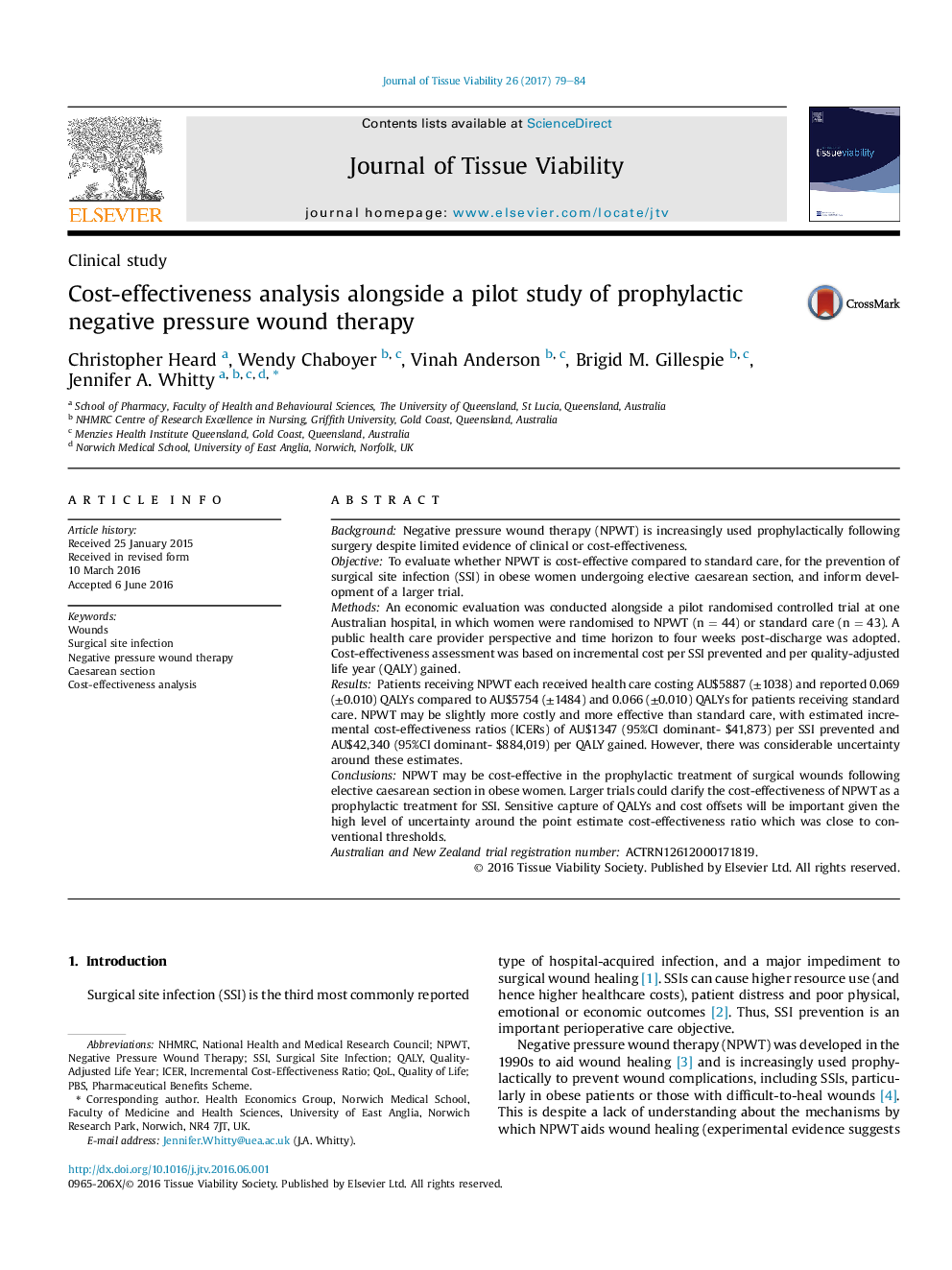| کد مقاله | کد نشریه | سال انتشار | مقاله انگلیسی | نسخه تمام متن |
|---|---|---|---|---|
| 5570777 | 1403771 | 2017 | 6 صفحه PDF | دانلود رایگان |
- Cost-effectiveness study of prophylactic NPWT post caesarean section in obese women.
- Pilot compared costs alongside QoL and SSI incidence as outcome measures.
- NPWT may be cost-effective; however, results do not reach statistical significance.
- There is a need for larger trials to reduce uncertainty and confirm findings.
- Sensitive capture of QoL and cost offsets are paramount to show cost-effectiveness.
BackgroundNegative pressure wound therapy (NPWT) is increasingly used prophylactically following surgery despite limited evidence of clinical or cost-effectiveness.ObjectiveTo evaluate whether NPWT is cost-effective compared to standard care, for the prevention of surgical site infection (SSI) in obese women undergoing elective caesarean section, and inform development of a larger trial.MethodsAn economic evaluation was conducted alongside a pilot randomised controlled trial at one Australian hospital, in which women were randomised to NPWT (n = 44) or standard care (n = 43). A public health care provider perspective and time horizon to four weeks post-discharge was adopted. Cost-effectiveness assessment was based on incremental cost per SSI prevented and per quality-adjusted life year (QALY) gained.ResultsPatients receiving NPWT each received health care costing AU$5887 (±1038) and reported 0.069 (±0.010) QALYs compared to AU$5754 (±1484) and 0.066 (±0.010) QALYs for patients receiving standard care. NPWT may be slightly more costly and more effective than standard care, with estimated incremental cost-effectiveness ratios (ICERs) of AU$1347 (95%CI dominant- $41,873) per SSI prevented and AU$42,340 (95%CI dominant- $884,019) per QALY gained. However, there was considerable uncertainty around these estimates.ConclusionsNPWT may be cost-effective in the prophylactic treatment of surgical wounds following elective caesarean section in obese women. Larger trials could clarify the cost-effectiveness of NPWT as a prophylactic treatment for SSI. Sensitive capture of QALYs and cost offsets will be important given the high level of uncertainty around the point estimate cost-effectiveness ratio which was close to conventional thresholds.Australian and New Zealand trial registration numberACTRN12612000171819.
Journal: Journal of Tissue Viability - Volume 26, Issue 1, February 2017, Pages 79-84
